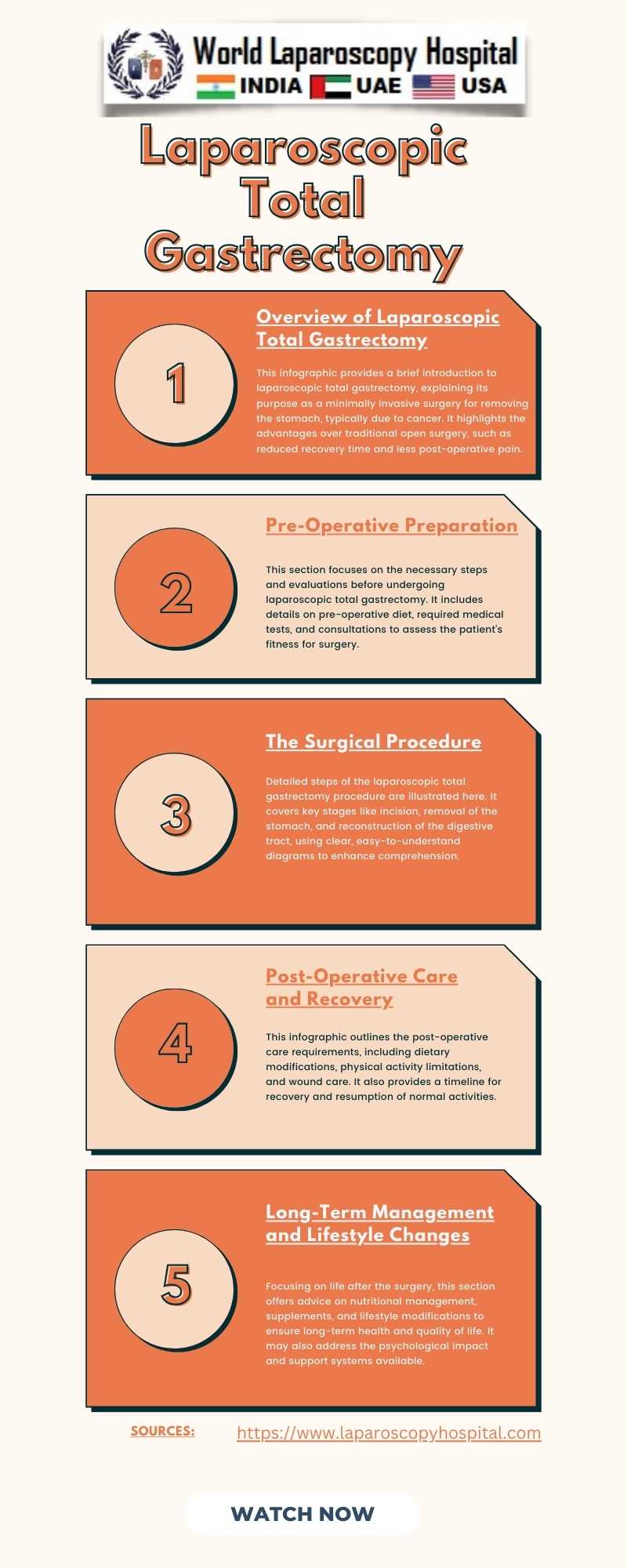Advancements in Minimally Invasive Surgery: Exploring Laparoscopic Total Gastrectomy
Minimally Invasive Surgery (MIS), a revolutionary approach in the medical field, has been transforming surgical practices worldwide. Among its various applications, Laparoscopic Total Gastrectomy (LTG) stands out as a noteworthy advancement, especially in the treatment of gastric cancer. This article explores the evolution, techniques, benefits, and future prospects of LTG within the realm of MIS.

Evolution of Laparoscopic Total Gastrectomy
The journey of LTG began in the early 1990s, following the success of laparoscopic techniques in other surgical procedures. Initially met with skepticism due to the complexity and high skill requirement, LTG has gradually earned its place as a preferred technique for gastric malignancies. This transition is underpinned by advancements in surgical instruments, enhanced imaging technologies, and the growing expertise of surgeons.
Technical Aspects of LTG
LTG involves the removal of the entire stomach, usually to treat cancer. This procedure is performed through small incisions using a laparoscope, a long, thin tube with a high-resolution camera and light at the front. Surgeons view the internal organs on a video monitor and use specialized instruments to perform the surgery. This approach contrasts with traditional open surgery, where large incisions are required.
The technical complexity of LTG lies in the meticulous lymph node dissection and the reconstruction of the digestive tract, which requires highly skilled surgeons. The procedure demands precision and careful handling of tissues to minimize the risk of complications.
Benefits of Laparoscopic Total Gastrectomy
The benefits of LTG, aligned with the principles of MIS, are significant. Patients experience reduced post-operative pain, faster recovery, and shorter hospital stays. The smaller incisions also lead to less scarring and a lower risk of wound infections. Importantly, LTG has shown oncological outcomes comparable to open surgery, with some studies suggesting better lymph node retrieval rates.
Challenges and Limitations
Despite its advantages, LTG is not without challenges. The learning curve for surgeons is steep, and the procedure requires sophisticated equipment and surgical expertise. Intraoperative complications, such as bleeding and injury to adjacent organs, remain concerns, though they decrease with surgeon experience.
Future Prospects
The future of LTG is promising, with continuous innovations enhancing its efficacy and safety. Robotic-assisted laparoscopic total gastrectomy is emerging as a frontier in MIS, offering better ergonomics, precision, and visualization. Moreover, ongoing research into surgical techniques and adjuvant therapies is expected to further improve patient outcomes.
Conclusion
Laparoscopic Total Gastrectomy, a pinnacle of minimally invasive surgery, represents a significant leap forward in the surgical management of gastric cancer. While challenges exist, its benefits in terms of patient recovery and oncological outcomes are undeniable. As technology and surgical expertise continue to advance, LTG is poised to become a standard in gastric cancer surgery, exemplifying the transformative impact of MIS in modern healthcare.

Evolution of Laparoscopic Total Gastrectomy
The journey of LTG began in the early 1990s, following the success of laparoscopic techniques in other surgical procedures. Initially met with skepticism due to the complexity and high skill requirement, LTG has gradually earned its place as a preferred technique for gastric malignancies. This transition is underpinned by advancements in surgical instruments, enhanced imaging technologies, and the growing expertise of surgeons.
Technical Aspects of LTG
LTG involves the removal of the entire stomach, usually to treat cancer. This procedure is performed through small incisions using a laparoscope, a long, thin tube with a high-resolution camera and light at the front. Surgeons view the internal organs on a video monitor and use specialized instruments to perform the surgery. This approach contrasts with traditional open surgery, where large incisions are required.
The technical complexity of LTG lies in the meticulous lymph node dissection and the reconstruction of the digestive tract, which requires highly skilled surgeons. The procedure demands precision and careful handling of tissues to minimize the risk of complications.
Benefits of Laparoscopic Total Gastrectomy
The benefits of LTG, aligned with the principles of MIS, are significant. Patients experience reduced post-operative pain, faster recovery, and shorter hospital stays. The smaller incisions also lead to less scarring and a lower risk of wound infections. Importantly, LTG has shown oncological outcomes comparable to open surgery, with some studies suggesting better lymph node retrieval rates.
Challenges and Limitations
Despite its advantages, LTG is not without challenges. The learning curve for surgeons is steep, and the procedure requires sophisticated equipment and surgical expertise. Intraoperative complications, such as bleeding and injury to adjacent organs, remain concerns, though they decrease with surgeon experience.
Future Prospects
The future of LTG is promising, with continuous innovations enhancing its efficacy and safety. Robotic-assisted laparoscopic total gastrectomy is emerging as a frontier in MIS, offering better ergonomics, precision, and visualization. Moreover, ongoing research into surgical techniques and adjuvant therapies is expected to further improve patient outcomes.
Conclusion
Laparoscopic Total Gastrectomy, a pinnacle of minimally invasive surgery, represents a significant leap forward in the surgical management of gastric cancer. While challenges exist, its benefits in terms of patient recovery and oncological outcomes are undeniable. As technology and surgical expertise continue to advance, LTG is poised to become a standard in gastric cancer surgery, exemplifying the transformative impact of MIS in modern healthcare.
No comments posted...
| Older Post | Home | Newer Post |

